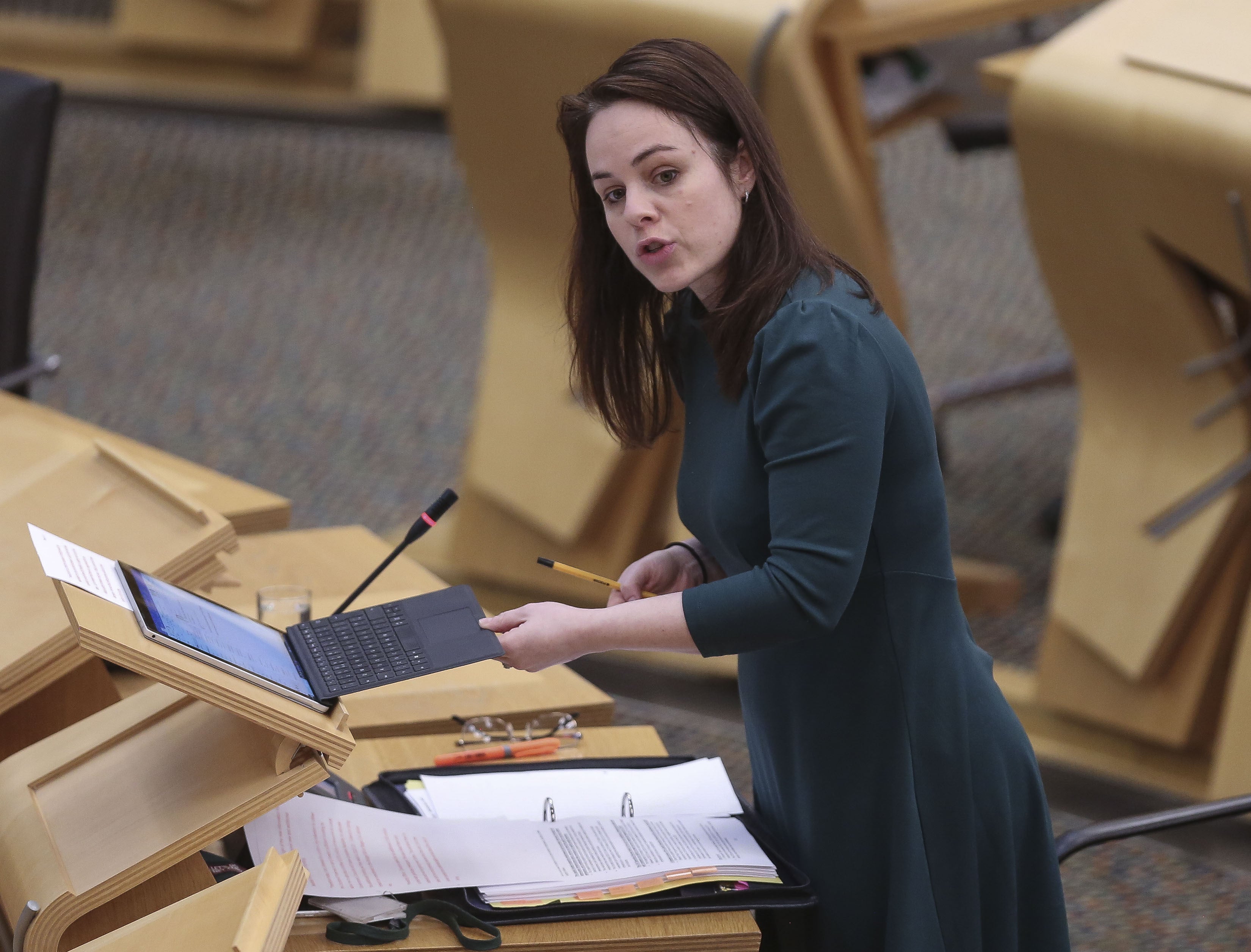Scotland’s councils to get extra £120m in funding, Forbes announces
The increase is the equivalent of a 4% rise in council tax.

Your support helps us to tell the story
From reproductive rights to climate change to Big Tech, The Independent is on the ground when the story is developing. Whether it's investigating the financials of Elon Musk's pro-Trump PAC or producing our latest documentary, 'The A Word', which shines a light on the American women fighting for reproductive rights, we know how important it is to parse out the facts from the messaging.
At such a critical moment in US history, we need reporters on the ground. Your donation allows us to keep sending journalists to speak to both sides of the story.
The Independent is trusted by Americans across the entire political spectrum. And unlike many other quality news outlets, we choose not to lock Americans out of our reporting and analysis with paywalls. We believe quality journalism should be available to everyone, paid for by those who can afford it.
Your support makes all the difference.Scotland’s 32 local authorities will be given an extra £120 million next year, Finance Secretary Kate Forbes has said.
The increase, which can be provided as a result of a rise to the current year’s budget stemming from UK Government spending, equates to a 4% rise in council tax for local authorities, according to Ms Forbes, and will be carried forward into the 2022-23 spending plans.
As a result of the funding, the Finance Secretary said there will be no need for “inflation-busting” council tax rises.
The draft Budget set out in December removed the cap on council tax, leading to fears of a major increase, along with assertions by local government body Cosla that it was seeing a £371 million real-terms cut in funding.
The Scottish Parliament Information Centre found the Budget would represent a £284 million real-terms cut to councils’ core budgets.
Speaking during a debate on the first stage of the Budget Bill, Ms Forbes said: “Councils will have complete flexibility to allocate that funding as they wish next year and I intend to bring forward an amendment at stage two to deliver this.
“Councils asked for an additional £100 million to deal with particular pressures.
“We have heard them and listened and we are going to go further.
“That will allow them to deal with the most pressing issues they face and at a time when people are understandably worried about the cost of living.
“I would point out that this increase in funding would be equivalent to a 4% increase in council tax next year – so whilst councils have full flexibility in setting local council tax rates, I don’t believe there is a requirement for any inflation-busting increases next year.”
Ms Forbes went on to claim this year’s Budget was one of “hard choices”, adding: “But I believe we have made the right choices.”
Scottish Conservative finance spokeswoman Liz Smith accused the Scottish Government of an “attack” on local government, adding: “What has been said by Cosla, by every council group leader – including the SNP’s own – and from various groups like care workers who are on the front line of delivering council services, they all see really big cuts coming.
“This Budget does nothing to properly secure Scotland’s economic future, or to safeguard essential local services, so we will oppose it at stage one.”
Commenting on the £120 million announcement, Scottish Labour finance spokesman Daniel Johnson said it is “welcome, but still leaves local services short of £250 million”.
He added: “We need more honesty about the numbers.
“The Government wants to compare this Budget to the emergency Covid funding of this year and last, but we were clear that Covid money would only be used for non-recurring Covid spend and I took them at their word and agreed with that principle.
“But that also means that with a £2.9 billion real-terms increase in core funding in the block grant, this sum was unallocated going into this Budget.
“Taking emergency Covid funds into their calculations not only misrepresents the position we are in – comparing a year of emergency with a year of recovery – but it also misrepresents the approach the Government took as it allocated those emergency funds.
“Less available in total, yes, but almost £3 billion unallocated available to be invested in recovery.
“If the Government were to apply the logic they applied to their funds to that of local government – including the emergency funds local government had at its disposal – that would mean local government facing a 25% cut, which isn’t the line I hear from the Cabinet Secretary.
“But then we know this Government lacks transparency when it comes to their budgets and how Covid money has been spent.”
Scottish Liberal Democrat leader Alex Cole-Hamilton warned that “many people are feeling the squeeze like never before” because of inflation, and said: “We need to reflect that crushing reality in this Budget that we pass.
“But instead, we see cuts – and they are cuts – to local government, and they will see an unavoidable rise in council tax which will compound that reality still further.”